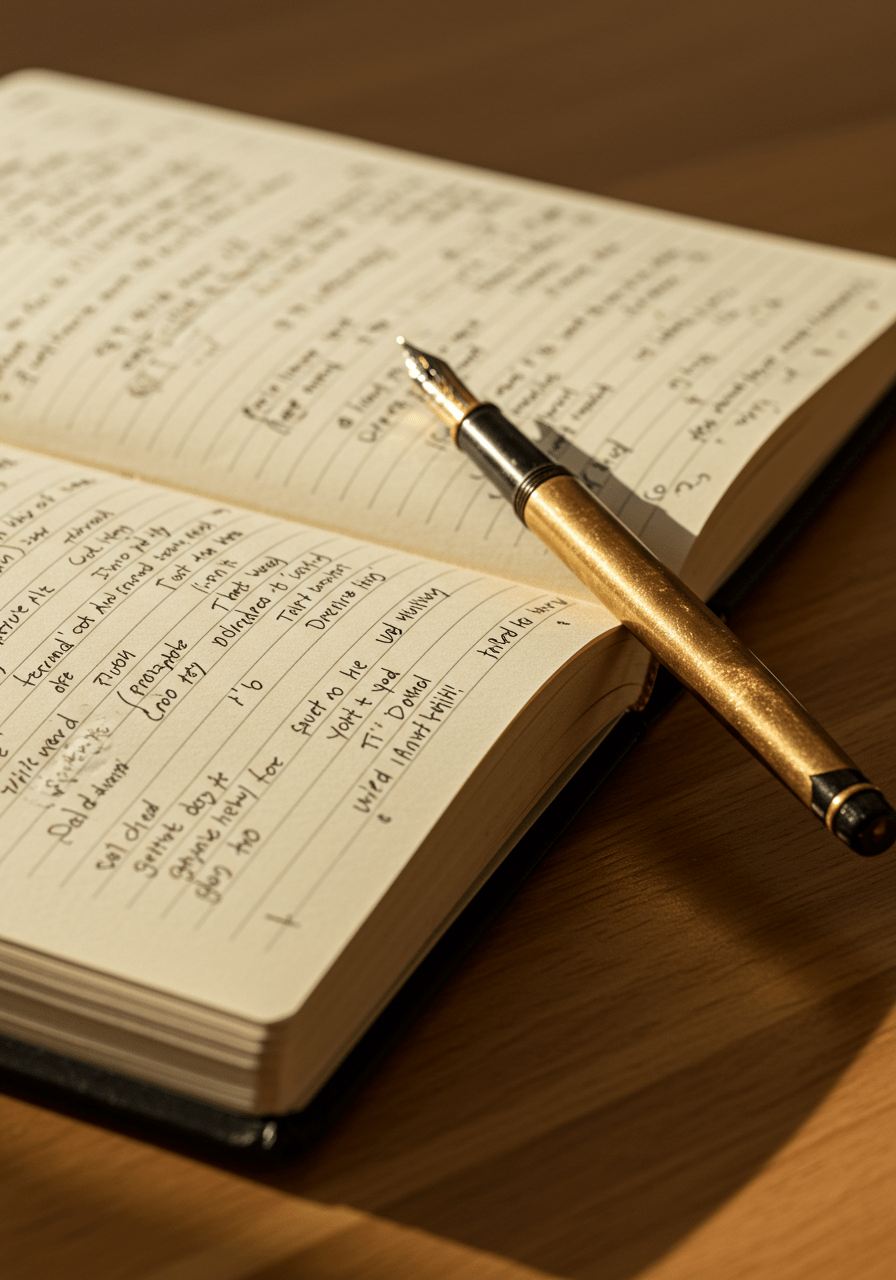1. Introduction
In recent years, the practice of gratitude journaling has gained significant attention as a powerful tool to enhance mental health and overall well-being. Scientific research on the science of gratitude reveals that regularly recording what we are thankful for can lead to profound psychological benefits such as increased happiness and reduced stress levels. A key component in fostering mental resilience, gratitude journaling has become an essential part of many mental health routines. The essential adaptogens for emotional balance can complement this practice, further boosting mental wellness. The significance of cultivating gratitude is reinforced by trending products in mindfulness tools like the red light therapy for face, which improve sleep and emotional regulation, or quality yoga apparel such as the DKNY Women’s Sport Tummy Control Workout Yoga Leggings to support a calming routine. This article explores how practicing gratitude through journaling can strengthen mental resilience, reduce stress, and create a more positive outlook on life.
2. The Science Behind Gratitude and Mental Health
Research indicates that expressing gratitude activates regions of the brain associated with dopamine and serotonin—neurotransmitters responsible for feelings of happiness. Neuroscientists have discovered that engaging in gratitude practices, like maintaining a gratitude journal, can physically alter brain pathways, promoting emotional stability and positive thinking. Understanding the science of gratitude helps us appreciate how this simple yet powerful act influences mental well-being. Incorporating supportive tools such as natural cortisol-lowering methods can access deeper emotional balance, enhancing overall mental health.

3. How Gratitude Journaling Enhances Mental Well-Being
Practicing gratitude through journaling yields measurable mental health benefits. The routine of writing about positive experiences not only shifts focus from worries but also facilitates neural changes that foster emotional resilience. Regular gratitude journaling can lead to:
- Reducing stress and anxiety: Documenting positive moments helps reframe perspectives, leading to decreased cortisol levels as seen with natural stress management strategies.
- Boosting happiness: Focused acknowledgment of what you’re thankful for increases general joy and emotional well-being.
- Improving sleep quality: Gratitude activities before sleep are linked with better rest, especially when combined with calming routines like yoga retreats in California.
- Enhancing resilience: Grateful individuals tend to recover faster from stressors, making gratitude journaling a fundamental element of emotional health.

4. How to Start a Gratitude Journal for Mental Health Benefits
Getting started with a gratitude journal doesn’t require specialized skills—just consistent effort and the right mindset. To maximize mental health benefits, consider incorporating tools like red light therapy masks to support relaxation and emotional positivity. Here are straightforward steps to begin:
- Choose a journal: Whether physical or digital, select a format that inspires commitment.
- Set aside dedicated time: Allocate a few minutes daily, preferably in the morning or before sleep, to reflect and write.
- Be detailed and specific: Focus on particular things you’re grateful for, adding depth to your entries.
- Revisit entries: Regularly reviewing old entries reinforces feelings of gratitude and positivity, nurturing long-term mental health.
Consistency transforms gratitude journaling into a habit that rewires your brain’s focus toward the positive aspects of life, fostering resilience and happiness over time.

5. Different Forms of Gratitude Practices
While journaling remains a popular method, there are numerous effective ways to cultivate gratitude as part of a holistic mental health routine:
- Gratitude meditation: Mindfully focusing on the positive aspects of life during meditation sessions enhances emotional clarity.
- Gratitude letters: Writing heartfelt letters to those who have positively impacted your life fosters deeper connection and appreciation.
- Gratitude walks: During walks, consciously noticing and appreciating your surroundings can boost mood and mindfulness.
- Visual gratitude: Creating vision boards with images of things you are grateful for serves as a daily visual reminder of positivity.
Incorporating these variations strengthens your gratitude practice, promoting mental resilience and emotional balance.

6. FAQs About Gratitude Journaling and Mental Health
Q1. How long does it typically take to notice mental health improvements from gratitude journaling?
Most individuals experience noticeable positive changes within 3 to 4 weeks of consistent daily practice, especially when combined with stress reduction techniques like natural cortisol management. Some may observe benefits sooner depending on individual engagement and circumstances.
Q2. Is gratitude journaling enough to replace professional mental health treatments?
While gratitude journaling is a valuable supplementary tool, it shouldn’t substitute for professional mental health care especially in cases of serious conditions. Always consult healthcare providers for tailored treatment plans and additional support methods.
Q3. Are there any potential risks or negative effects of gratitude journaling?
Generally, gratitude journaling is safe. Nonetheless, it can sometimes surface difficult emotions or memories. Approaching the practice with self-compassion and seeking support from mental health professionals when needed is recommended.
Q4. How does regular gratitude practice lead to stronger mental resilience?
By focusing consistently on positive life experiences, individuals build a resilient mindset that helps them better cope with stress, setbacks, and emotional challenges—making gratitude journaling a fundamental mental health tool.
7. Conclusion
The science of gratitude demonstrates that cultivating appreciation through journaling significantly boosts mental health. Integrating gratitude journaling into your daily routine is a simple yet powerful strategy for enhancing emotional resilience, reducing anxiety, and fostering overall happiness. To deepen your practice, consider adding tools like red light therapy devices or engaging with retreats such as the mental health retreats for 2025. Start today to experience the transformative impact of gratitude on mental health — one journal entry at a time.

